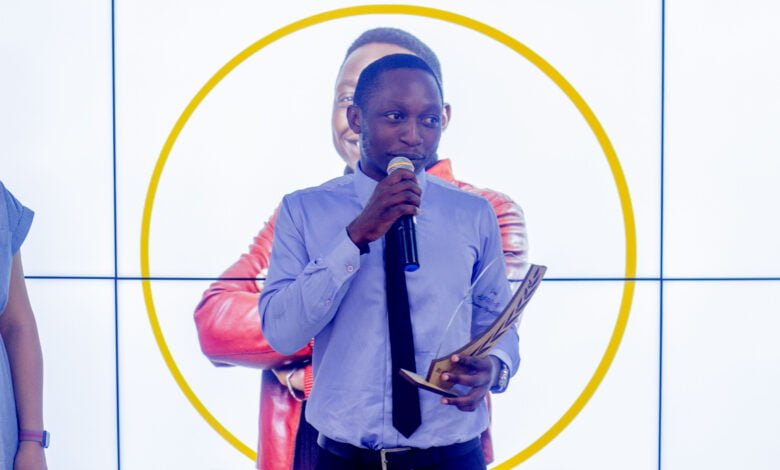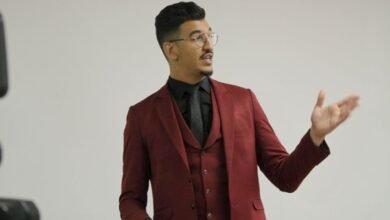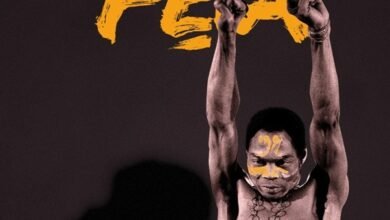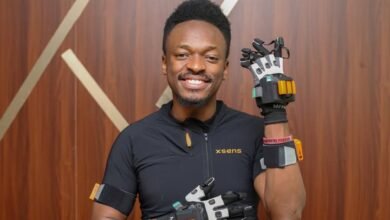Michael Djimeli : “We need to train engineers in Africa, from an early age !”
With his company, Kodji Robot, Cameroonian engineer, Michael Djimeli coaches students, who are often poorly trained, to finalize their end-of-studies model. He therefore fills their lack of practice. Based in Tunisia, he was voted best migrant entrepreneur 2022 by the incubator Kufanya.

By Mérième Alaoui
Michael Djimeli has been fascinated by robotics, since his childhood in Cameroon. « I used to watch my brother, a high technical school student, build a sound amplifier. I was also very attracted to electronics, anything that was remote-controlled. It fascinated me and I wanted to dig further. And that’s what he did. Michael Djimeli, 29, quickly found his way. He passed his bachelor’s degree in electrical engineering and began working night shifts, while studying. « I was making maps, signs, luminous signs for pharmacies in particular. Hence, I learned the programming of components allowing the manufacture of automatic objects. »
In 2018, he continued his studies in Tunisia and joined the private higher school of engineering in Monastir (Esprims). Well-established in the Maghreb, he decided to launch his own training company once he graduated. « When I got in touch with Kufanya, a business incubator dedicated to migrants, I had already launched my company and even had premises. But, thanks to their training, I developed my pitch and worked better on my business plan. » His turnover reached 25,000 dinars (7,847 euros) in Tunisia, with thirty students to coach.
« I had the idea of putting students in contact with competent trainers to assist them because practice and experience were missing in their curriculum »
Kodji Robot responds to a very concrete need of engineering students: to help them with the presentation of their final year project, a robotic innovation to be presented to the jury. « I had the idea of putting students in contact with competent trainers to assist them because practice and experience were missing in their curriculum. They needed soft skills, a modern methodology, » says the man who is very critical of the education offered to engineers in most French-speaking African countries. « The focus is restricted to theory, calculations, mathematics… It’s only after two years of preparatory classes that practice comes in. To maintain the level and attention, you have to build as fast as possible. «
« It’s different in Nigeria, Ghana, Rwanda, and most English-speaking countries. They are more organized in education, with more serious governments. You only have to look at the graduation projects of South African students, for example, to see that. »
« To build machines, imagine, create and respond to concrete needs, the African continent needs trained engineers. We need to be able to create and produce, on the continent, what we import »
Getting into practice earlier? And why not from childhood? That’s the other part of his business: training children, as young as five, in robotics. « You have to start at an early age, prior to adolescence. After that, the child has other concerns. It’s more difficult to get them interested. For example, I have been working with a 14-year-old boy for a long time. Today, he is very gifted. I think that, in two years, his level will allow him to join a company! « he says. Children whose imaginations are boundless can, according to Michael, put together a project, lay it out in 3D, and learn to build it. For them, it’s a game.
Africa is sorely lacking engineers. That’s why Michael’s project to reform and support training courses caught the attention of the Kufanya jury. « To build machines, imagine, create and respond to concrete needs, the African continent needs trained engineers. We need to be able to create and produce, on the continent, what we import. »
The Cameroonian entrepreneur, who regretted that his application for renewal of his residence permit was rejected by the Tunisian authorities, has just seized an opportunity to develop his engineering in the United States, a country very fond of robotics clubs for children. « I still maintained my business in Tunisia. And I want to return there as soon as possible to develop it in Africa, especially in my native country, Cameroon.






